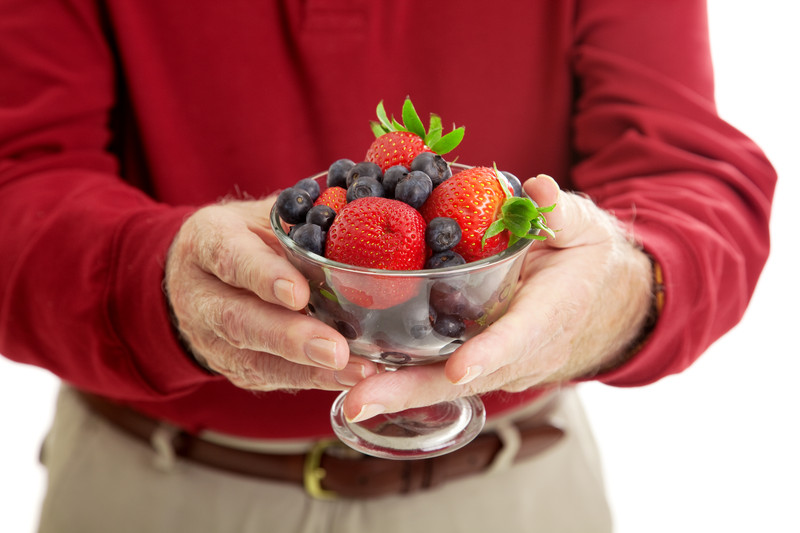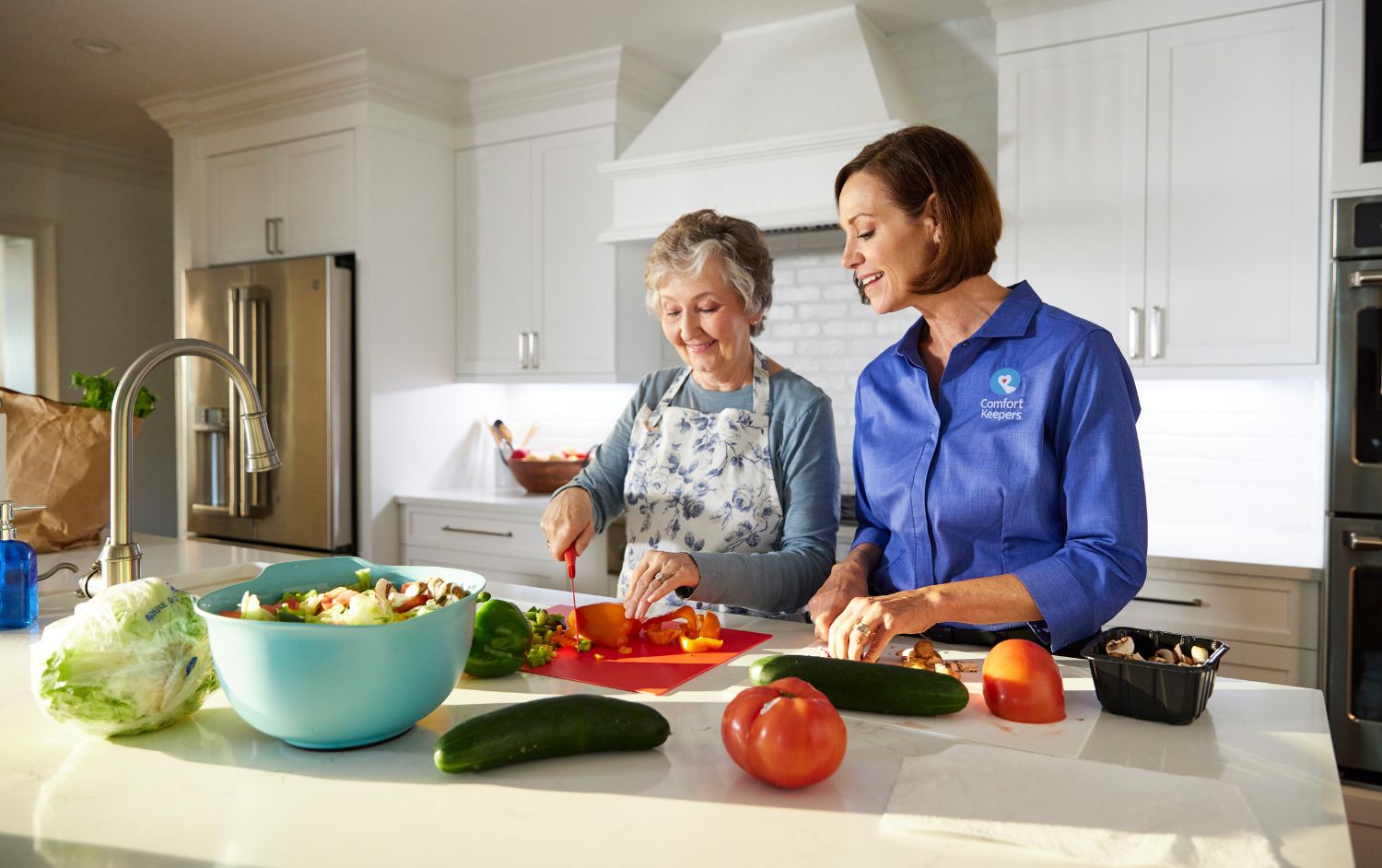Proper Portions for National Nutrition Month and Senior Care
Health Eating for Seniors | March 5, 2018

What Every Senior in Victoria, BC, Needs to Know About Proper Portions and Nutrition
Proper Portions | In honour of National Nutrition Month, our senior care professionals encourage seniors to eat portion sizes for optimal health. Today’s larger portions mean extra calories and encourage seniors to eat more than they otherwise would.
Seniors unaware of proper portions can underestimate the amount of calories they are consuming. Try the following ideas to ensure you are keeping portions in check.
Six Tips for Proper Portions for Seniors
#1. Share Meals to Save Calories
Restaurants are infamous for their service of large, oversized portions. Seniors who eat at restaurants regularly should try to split meals with family and friends or ask for half of their meals to be packed away to avoid overeating.
Portion control can help a senior’s body to become fuller after eating less food at meals, so they can meet their weight loss goals and maintain a healthy weight.
#2. Fill up on Nutritious Foods First
Ensure that most of the plate is vegetables, whole grains, fruits, lean proteins, and other fibre-filled foods. There will be less chance of overeating sweets, unhealthy fats, and snack foods with little nutritional value.
#3. Drink Plenty of Water
Seniors and older adults who stay hydrated and drink plenty of water can feel fuller and cut back on calories without feeling hungry. Seniors should attempt to drink at least eight 8-ounce glasses of water.
#4. Use Smaller Dishes at Meals
Larger plates can lead to overeating and seniors have likely been taught to clean their plates to avoid food waste. Smaller plates can help give the appearance of a larger portion size and prevent adding too many calories.
#5. Utilize Measuring Cups and Scales
Kitchen scales and measuring cups help seniors and older adults stick to the correct portion size with their meals. With time, seniors can estimate proper portions without using scales.
#6. Avoid Skipping Meals or Going Too Long Between Meals and Snacks
Seniors who skip regular meals are more likely to feel hungry, eat junk food, and eat portions that large. Sticking to a regular meal schedule consisting of nutrition-filled meals, and 2-3 healthy snacks throughout the day, is ideal. Older adults should refrain from going more than five hours without eating.
The Best Senior Home Care Provider in Victoria, BC, is Comfort Keepers®
Firstly, if you are concerned about the health and well-being of your aging loved ones, we can help with 24-hour care. We offer senior care, post-surgery care, palliative care, personal care, senior living transition services, and much more!
Comfort Keepers® Victoria Provides In-Home Elderly Care Services
Aging in place means keeping seniors happy and healthy at home. Comfort Keepers® trained caregivers provide seniors with the highest quality of life possible. In particular, our Interactive Caregiving™ system provides care that addresses safety, nutrition, mind, body, and activities of daily living.
Comfort Keepers® Victoria In-Home Caregivers Can Help with Interactive Caregiving™
Personal and empathetic care starts in the heart and allows us to meet our clients’ needs. Our philosophy is to elevate the human spirit. Our caregivers will be there every step of the way to ensure your loved one has a better quality of life.
Senior Homecare in Victoria, BC
Our unique services offer families respite care, overnight care, personal care, companionship care, palliative care, and end-of-life care. To learn more, contact the Comfort Keepers Victoria office.
Comfort Keepers® Victoria is Proud to Provide Senior Care and Home Care Services to Keep Seniors Safe in Their Homes
If you are searching for home care near you, we can help! Comfort Keepers® Victoria can provide home care for Victoria and surrounding areas. Service territory includes Colwood, Saanich, Sidney, James Bay, and Oak Bay. Please call (778) 265-5999 and learn how your loved ones can receive compassionate, professional in-home care.
Quality and Accredited Respite Care for British Columbia Families
Comfort Keepers® Victoria has achieved Exemplary Standing accreditation from Accreditation Canada. This accreditation, a rigorous evaluation of organizational processes, policies, and procedures against established quality standards by industry experts, signifies that Comfort Keepers’ offices have successfully met or surpassed the stringent benchmarks for Home Care companies as defined by Accreditation Canada.
Individualized Home Care Options
Long-Term Home Care, 24 Hour Home Care & Short Term Care Options Customized for You






